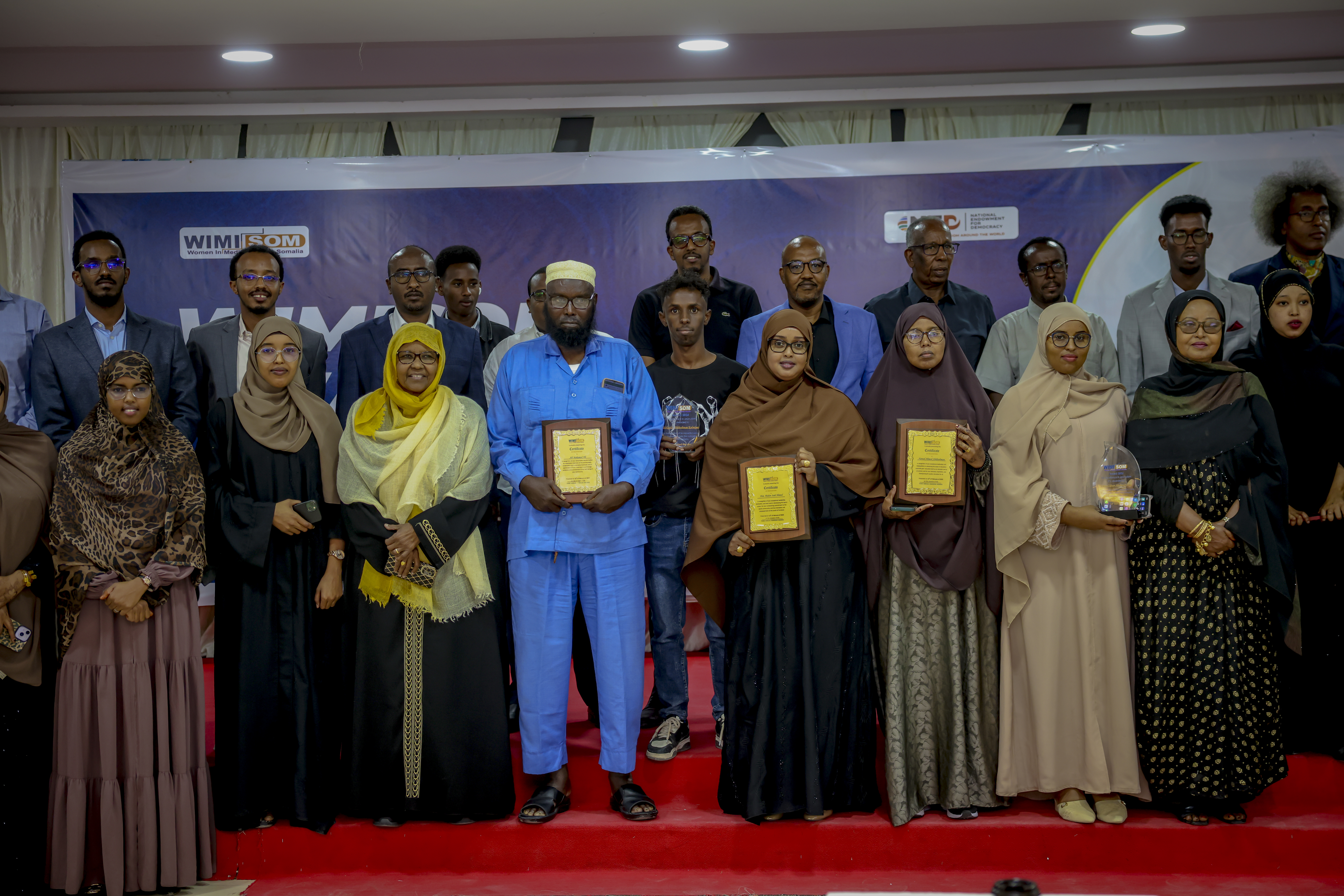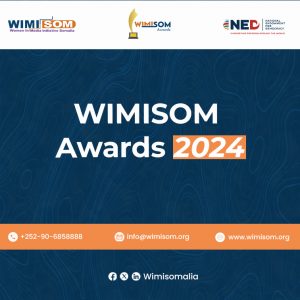WIMISOM organized a Discussion on the Potential of Digital Technology for the Empowerment of Women and Girls in Somalia on the occasion of the commemoration of 8 March- International Women’s Day.
The event intended to highlight the state of women’s role in technology and innovation, and digital rights issues, alongside advocating for policy and practice reforms that contribute to the development of a safe empowering online environment for women and girls to achieve effective and inclusive use of technology for socio-economic and political development in Somalia.

WIMISOM’s Head of Programs Mr. Yahye Mohamed gave brief opening remarks on the importance of the activity and its goal to facilitate inclusive dialogue on the state of women’s technology and digital utilization in Somalia as well as to analyze the potential of digital technology in the empowerment of women and girls in Somalia and for achieving gender equality.
Mr. Yahye urged the panelists and participants who were all stakeholders in the technology and women empowerment sector to take this opportunity to reflect on this key issue and to propose policy options and recommendations which could be used in improving women’s utilization of technology in Somalia.

The discussion brought together a total of 40 people both panelists and participants including CSO and women organizations, government authorities, tech entrepreneurs, innovation hubs, female university students, digital security experts, women in STEM, female journalists, and women political figures.
During the discussion, panelists and participants touched upon key issues and suggested many policy options and recommendations which will improve the capitalization of women on the potential of technology and innovation for the social, economic, and political empowerment of women.

Eng. Abdikani Mohamed has given an overview of the opportunities provided by the advent of technology and innovation in this age and how that can be leveraged into facilitating development, education, business, job creation, and social entrepreneurship.
Abdikani spoke of his experience as a tech startup entrepreneur, his journey in building a successful technology company, and how he leveraged modern technology to start a business that employs several youths. He emphasized the importance of self-study, skill building, continuous capacity building, and mentorship.

Mohamed Abdullahi Ali has stated the challenges of technology access toward women, he reflected on his personal experience in academia that he has seen the difficulties students especially female youth including lack of regular access to high-quality internet due to socioeconomic conditions, online-based gender-based violence, poor understanding of digital security mechanisms. He mentioned that such obstacles have made the tech sector and the online world not welcoming to women and girls.

Abdimudalib Ahmed Said, who works at the Puntland Ministry of Information has commented that the lack of integration of ICT education in primary education puts youth including women at disadvantage to utilize technology for education. He commented that sometimes even ICT students are disadvantaged because of their lack of familiarity with technology at a younger age and earlier in their education journey.

This activity was part of the commemoration of the 8 March-the International Women’s Day.




